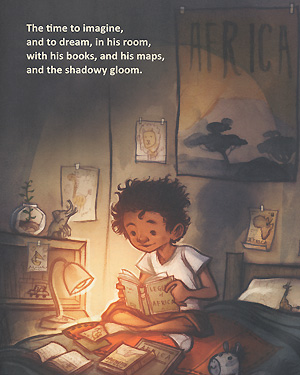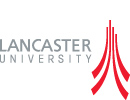Information for Schools and Parents
We would like to invite primary and secondary schools in the Lancaster area to take part in the English strand of this project.
 Children encounter morphologically complex words in stories. From Jamie’s Journey The Savannah by Susan M. Ebbers © 2012
Children encounter morphologically complex words in stories. From Jamie’s Journey The Savannah by Susan M. Ebbers © 2012
How can schools and parents help?
We are looking for Year 2, Year 5, and Year 8 classes to take part in our project. Participating children will be asked to complete a set of language and literacy assessments, which will be administered in short sessions.
These sessions can take place over the duration of a school term, timetabled to suit the individual classroom teacher to minimise disruption to the regular curriculum.
What assessments will the children be asked to complete?
We will be using a broad range of reading and language assessments for our project. These will include:
- Assessments of reading ability. We will assess reading comprehension and word reading with a standardized assessment that involves reading short texts and answering questions about each one.
- Vocabulary. Vocabulary knowledge is related to both word reading and reading comprehension. We will assess how many words a child understands using a task in which children match one of four pictures to a spoken word.
- Phonological awareness. Phonological awareness is the ability to identify and manipulate sounds in words, and has been closely associated with word reading ability. An example of a phonological awareness is knowing that the spoken word trick is pronounced rick with the initial /t/ sound removed.
- Morphological awareness tasks. Morphological awareness tasks assess a child's understanding of word formation. Morphological awareness is related to reading ability and different aspects of morphology will be assessed in our tasks, including:
- Judgement of the appropriateness of novel compound words, e.g., Which is a better name for a bee that lives in the grass? A grass bee or a bee grass? [grass bee]
- Production of the inflected plural forms of novel word, e.g., Here is a plog. Here are two ____ [plogs].
- Production of derived form, e.g., Farm [root]. My uncle is a ____ [farmer].
What will happen to the data?
The students' responses will be completely confidential and stored anonymously: we cannot release individual scores to schools or parents. The data will be analysed at the group level according to age. We would also like to share our overall findings and conclusions with parents, staff and students. We will do this in several ways: all participating schools and parents will receive a summary of our findings and will be invited to a workshop at Lancaster University to find out more about this study and our related work on literacy. We are also happy to come along to a staff meeting or INSET day to talk about this project and its implications.
How can I find out more about this project?
For more information about taking part, please contact us using the details on this page.
We'd like to take part!
Great! Please get in touch.
Funded by
Economic and Social Research Council
Research Grants Council (Hong Kong)
UK Research team:
- Principal Investigator
- Professor Kate Cain
- Research Associate
- Emma James
HK Research team
- Principle Investigator
- Professor Xiuli Tong
- Research Associate
- Joyce Mok
Contact Us
If you would like to discuss this work further, please contact the Principal Investigator
